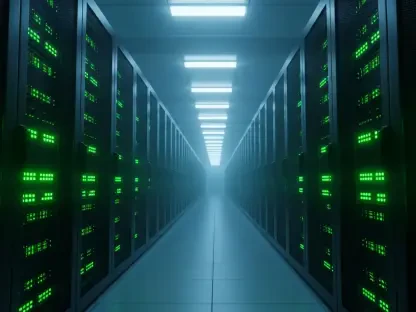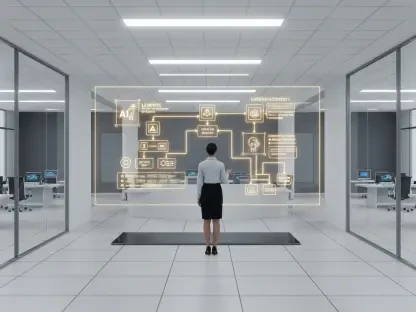In a nation built on the contributions of immigrants, the U.S. grapples with a staggering challenge: how to address the status of millions of undocumented individuals while safeguarding economic stability and humanitarian values. Recent events, such as the high-profile roundup of South Korean workers at a Hyundai factory in Georgia, have reignited fierce discussions on immigration policy. This roundup dives into diverse opinions and insights from industry leaders, policy advocates, and community voices to explore how reform can strike a delicate balance between economic needs and ethical imperatives. The purpose is to synthesize varying perspectives on practical solutions, offering a clearer path forward in a deeply divisive issue.
Unpacking the Immigration Crisis: Why Reform Is Urgent
The scale of illegal immigration in the U.S. remains a pressing concern, with millions of undocumented individuals living in legal uncertainty. Many stakeholders argue that the current system fails both the economy and the people it aims to regulate. Industry representatives often highlight disruptions caused by sudden enforcement actions, such as mass deportations, which leave critical sectors scrambling for labor. This urgency is amplified by public sentiment, which increasingly views harsh measures as counterproductive when they target long-term residents with no criminal records.
On the other hand, border security advocates stress the importance of maintaining legal integrity, cautioning against policies perceived as too lenient. They argue that unchecked immigration undermines national safety and strains public resources. This tension between enforcement and compassion sets the stage for a broader conversation on reform, with many calling for targeted policies rather than sweeping measures. The diversity of opinions underscores a shared recognition: the status quo is unsustainable, and immediate action is essential.
Economic and Ethical Priorities: A Dual Challenge
Immigrant Labor as an Economic Pillar
Across various platforms, business leaders in agriculture, construction, and hospitality consistently emphasize the indispensable role of immigrant workers. These industries face chronic labor shortages, and many argue that without this workforce, entire supply chains could collapse. Data shared by economic analysts suggests that mass deportations could cost billions in lost productivity, a point echoed by company heads who rely on foreign talent to meet demand.
Conversely, some economic commentators caution against over-reliance on undocumented labor, suggesting it depresses wages for American workers. They advocate for stricter enforcement paired with incentives to hire domestically, though they often acknowledge the lack of willing local candidates for certain roles. This divide reveals a core dilemmhow to protect economic vitality without perpetuating an underground workforce that operates outside legal protections.
A third perspective comes from small business owners, who often note that immigrant labor isn’t just about filling gaps—it’s about community growth. Many express frustration with policies that disrupt their operations while offering no viable alternatives. This viewpoint pushes for legal pathways that allow businesses to thrive without fear of sudden workforce losses due to immigration raids.
Humanitarian Focus: The Plight of Dreamers and Long-Term Residents
When it comes to humanitarian concerns, advocacy groups frequently spotlight the 2.5 million Dreamers—individuals brought to the U.S. as children—who face constant uncertainty. Many voices in this space argue for permanent residency as a moral necessity, pointing to the deep roots these individuals have established through education, careers, and families. Public opinion, as reflected in various surveys, often supports this stance, favoring solutions over continued limbo.
However, some policy analysts raise concerns about the scope of such protections, particularly regarding privileges like voting rights. They suggest that while residency may be warranted, full integration should be approached cautiously to avoid political backlash. This perspective seeks a middle ground, prioritizing stability for Dreamers while addressing broader public apprehensions about immigration benefits.
Community leaders add another layer, often sharing stories of long-term undocumented residents who contribute through taxes and civic engagement yet live in fear of deportation. Their plea is for policies that recognize these contributions, arguing that compassion must extend beyond Dreamers to all who have built lives in the U.S. over decades. This viewpoint challenges lawmakers to craft inclusive reforms that don’t leave entire groups behind.
Innovative Policies: Work Programs and Talent Retention
On the policy front, many experts propose tailored work programs to address labor shortages, particularly in industries like agriculture and specialized manufacturing. The case of skilled South Korean technicians in Georgia is often cited as evidence that temporary work visas could meet specific economic needs without compromising security. Supporters of this idea argue it offers a pragmatic way to legalize essential labor while maintaining control over immigration flows.
A contrasting opinion emerges from academic circles, where some suggest focusing on retaining international students to prevent talent drain to other nations. Statistics often highlight that a significant portion of major U.S. companies were founded by immigrants or their children, prompting calls for streamlined pathways to keep this entrepreneurial spirit domestic. Critics, however, warn that such policies risk prioritizing skilled workers over low-wage laborers who are equally vital to the economy.
Industry innovators push a bolder narrative, framing immigration not as a burden but as a strategic asset. They advocate for pilot programs that test flexible visa options, allowing the U.S. to adapt to shifting labor demands. This forward-thinking approach challenges outdated assumptions, urging policymakers to rethink immigration as an opportunity for growth if managed with precision and foresight.
Simplifying the Maze: Streamlining Immigration Processes
The inefficiency of the current immigration system draws near-universal criticism, with even law-abiding applicants facing years of delays. Many policy reformists compare the U.S. framework to more agile systems in other countries, arguing that excessive bureaucracy undermines both economic goals and fairness. Their call is for a simplified process that reduces wait times while maintaining rigorous vetting standards.
Some administrative experts, however, caution against oversimplification, warning that cutting corners could compromise security. They suggest incremental changes, such as digitizing applications and increasing staff capacity, rather than a complete overhaul. This measured approach aims to balance efficiency with the need for thorough oversight, ensuring the system isn’t overwhelmed by rapid reform.
A third perspective comes from legal advocates, who emphasize accessibility as a humanitarian issue. They argue that the complexity of the system disproportionately harms vulnerable populations who lack resources to navigate it. Their push for user-friendly reforms aligns with economic goals by ensuring that willing workers can contribute legally, adding a nuanced dimension to the efficiency debate.
Key Takeaways and Practical Paths Forward
Synthesizing these insights reveals a consensus on the need for targeted immigration reform that addresses specific groups like Dreamers while supporting labor-dependent industries. Many voices advocate for bipartisan legislation to create legal pathways for work and residency, alongside local initiatives to integrate undocumented individuals into communities. This blend of national and grassroots efforts is seen as crucial to breaking the deadlock on policy change.
Another recurring theme is the call to reframe immigration as a strategic tool rather than a problem. Various stakeholders, from business owners to academics, suggest that streamlined systems and innovative visa programs could position the U.S. as a leader in global talent attraction. This shift in mindset is often paired with a demand for transparency in how reforms are implemented to maintain public trust.
Engagement is also a common thread, with many urging citizens to stay informed on legislative developments and support businesses that depend on immigrant labor. This active participation is viewed as essential to shaping policies that reflect both economic realities and humanitarian values. The diversity of opinions ultimately points to a shared goal: a balanced system that upholds fairness and functionality.
Reflecting on a Path to Unity
Looking back, the discussions captured a remarkable range of perspectives, each contributing to a fuller understanding of the immigration challenge. The debates illuminated how economic imperatives and ethical considerations intertwine, often clashing but occasionally converging on practical ideas like work visas and residency protections. These conversations laid bare the complexities of reform, yet also showcased a collective desire for change.
Moving ahead, actionable steps emerged as a priority—policymakers were encouraged to champion pilot programs for labor needs, while communities were prompted to advocate for Dreamers and long-term residents through local support networks. A deeper exploration of streamlined systems was also advised, with an eye toward learning from international models. For those eager to delve further, resources on bipartisan policy proposals and economic impact studies offer a solid starting point to continue this critical dialogue.









